Tuesday, 27 March 2018
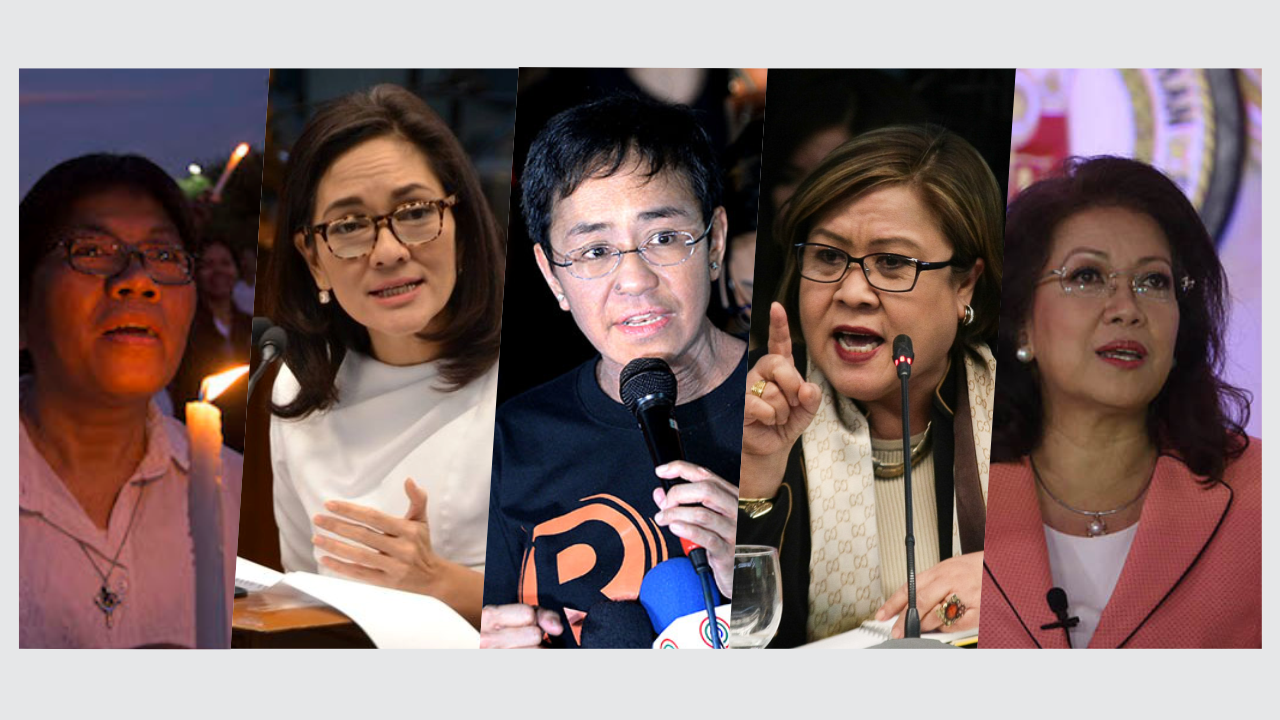
Duterte’s strongman politics attack women. Women are fighting back.
In a country struck by widespread state-sanctioned killings and political persecution, meet the Filipinas who are leading the resistance against the Duterte dictatorship, on the streets or in the halls of government.
The Duterte era is the worst--and best--time to be a woman in the Philippines.
When President Rodrigo Roa Duterte took power on June 2016, the Philippines has been placed under strongman rule. 20,000 people have been killed under the murderous War on Drugs, a campaign promise that made Duterte a subject of the International Criminal Court’s preliminary examination. Corruption is on the rise while hunger and poverty rates are worsening.
Under these conditions, women bear the brunt of Duterte’s failure to govern. At the height of the killings, women in urban poor communities suspected of selling illegal drugs are gunned down by police or masked gunmen. Most women become widows left to raise a family on their own. In the workforce, women have to endure cruel working conditions with low wages as Duterte surrendered to the capitalists.
The political situation might be dangerous but women are not lying back. When it became obvious that Duterte’s government is unashamedly macho and sexist, women fought back by building the resistance against the killings and political persecution. As Duterte offered 42 virgins to foreign businessmen and ordered the military to shoot women in their vaginas, women have spoken out against Duterte’s misogyny at every turn, stunting the growth of his strongman culture.
Women are not new to the struggle. In times of political unrest, women have always led resistance efforts in Philippine history. From the women revolutionaries of the Katipunan against the Spanish colonizers to the teachers and students during the Marcos dictatorship in the 1970s, women effectively organized grassroots communities and mobilized in great numbers even under oppression.
From the activist nun in grassroot communities to the Supreme Court Chief Justice, here are the women of the resistance:
Sister Nenet Daño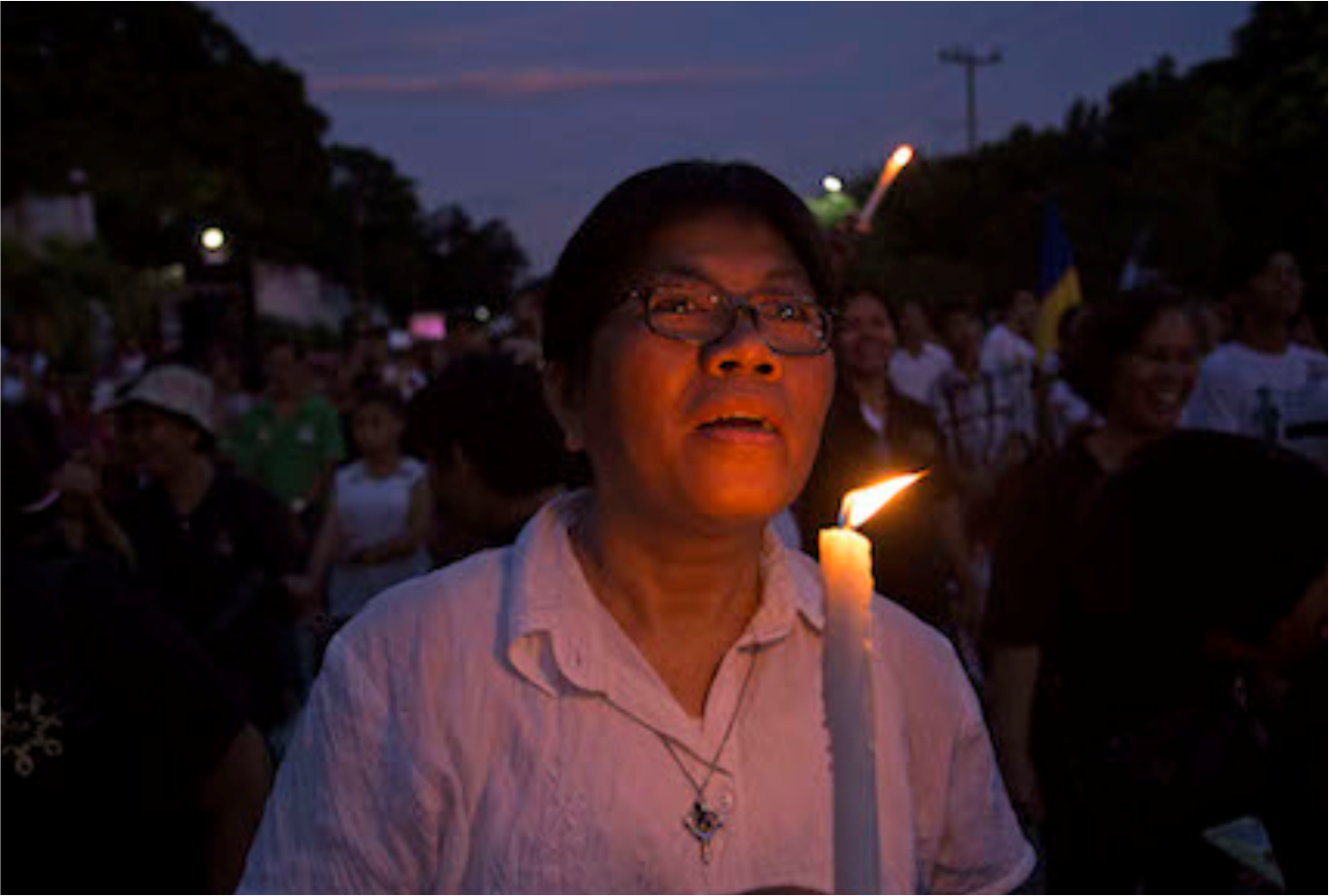 Sister Nenet Daño of Our Lady of Charity of the Good Shepherd is an organizer in San Andres Bukid, Manila. She was one of the first to take the Duterte government to court for Oplan Tokhang, the government’s murderous anti-drugs program. When people in San Andres Bukid fell prey to the killings, she started documenting the cases in her small diary, taking careful details of the names of the dead and the date they were killed.
Sister Nenet Daño of Our Lady of Charity of the Good Shepherd is an organizer in San Andres Bukid, Manila. She was one of the first to take the Duterte government to court for Oplan Tokhang, the government’s murderous anti-drugs program. When people in San Andres Bukid fell prey to the killings, she started documenting the cases in her small diary, taking careful details of the names of the dead and the date they were killed.
In a forum organized by Akbayan Party in Quezon City on March, Sr. Daño shared how it was a struggle to get victims to speak up.
“When we started building the case against Tokhang, the families were asking me ‘Sister, who do we run to? We can’t trust anyone now’. They were really scared,” Daño recounted in Filipino. “It was very important for us, and the lawyers who helped us file the case, to go back and immerse with the communities for us to gain the trust of the families.”
“The community were too scared to speak up when their neighbors started getting killed. People from the government kept going around the community, intimidating them from speaking up. So I told the lawyers, you have to immerse in their lives. Wash their dishes with them, help them wash their clothes. They have to trust you,” Daño said.
Sister Daño said that when they filed the case, some of the poor community members told her this was the first time they felt they were important. “You have to really go back to them and visit them all time. Organizing is really important. I realized praying alone doesn’t work, we needed to take action.”
Senator Risa Hontiveros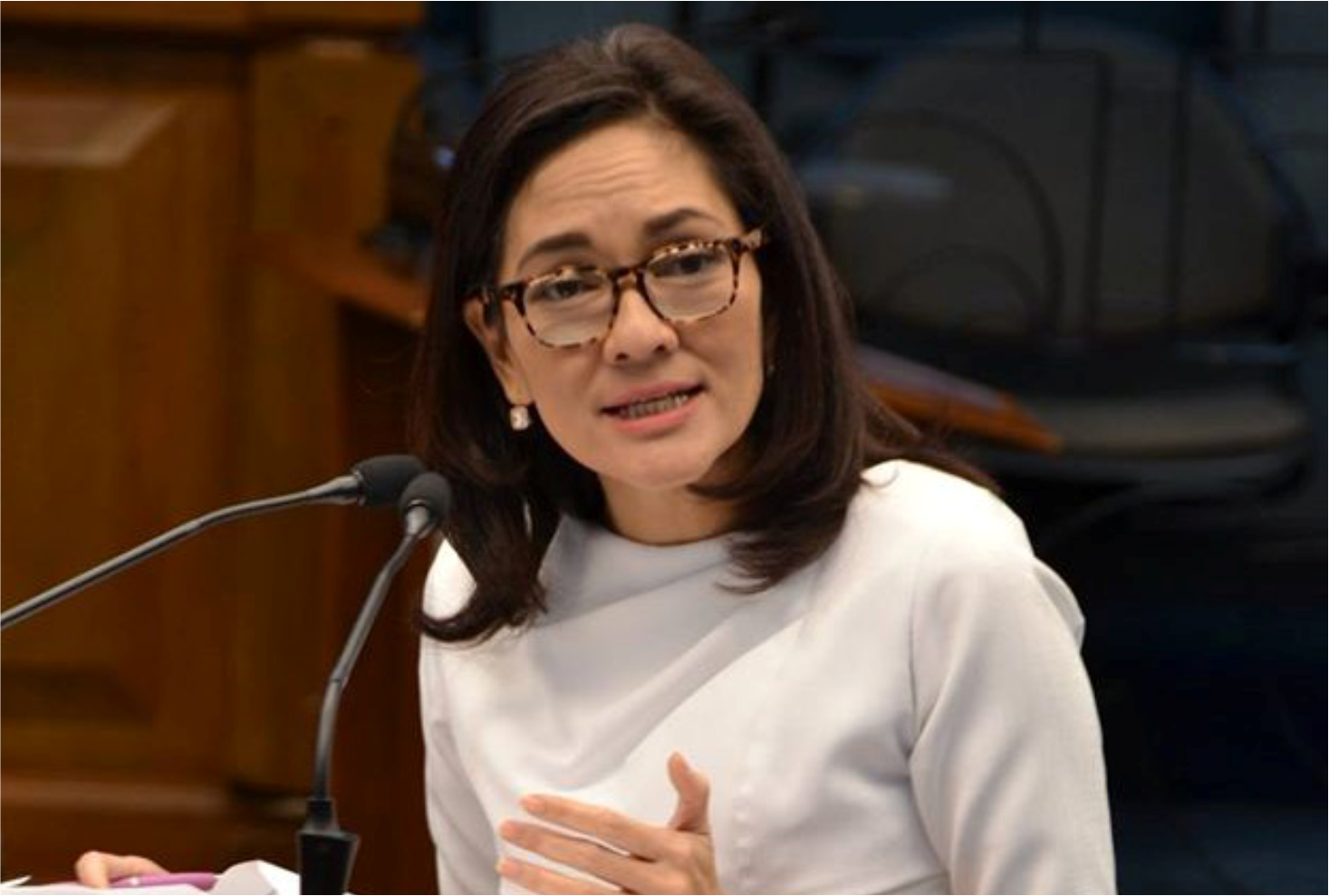 “Duterte’s first year is a dangerous for woman,” Akbayan Senator Risa Hontiveros wrote on June 2017 as President Duterte had his first State of the Nation Address.
“Duterte’s first year is a dangerous for woman,” Akbayan Senator Risa Hontiveros wrote on June 2017 as President Duterte had his first State of the Nation Address.
As Duterte’s creeping authoritarianism dropped its mask and became a full-blown dictatorship, Hontiveros, a socialist Senator, stood as one of the most fearless critics of the government in the Senate.
When 17-year old Kian delos Santos became one of the young victims of the police’s War on Drugs, the young witnesses to the slay feared for their lives and refused to seek protection under the Department of Justice, which has been corrupted under Duterte to defend the killings. Senator Hontiveros took the witnesses under her custody, ensuring that their testimonies are free from threats by the government.
Hontiveros was hounded by the Duterte government and its online trolls ever since. President Duterte called Hontiveros stupid on television for taking a swipe at his policy-to-kill. Justice Secretary Vitaliano Aguirre II then unfairly slapped Hontiveros with cases of kidnapping and wiretapping in the most absurd episodes of political harassment against the opposition. Duterte’s massive online propaganda machine have not stopped spreading lies through fake news blogs about Risa ridiculously claiming that she is set to file bills to ban tattoos and bikinis in an effort to discredit her.
This did not silence Hontiveros. She has chosen to fight back, making sure that every strongman policy in the Senate is effectively blocked. During budget season, Hontiveros probed the Masa Masid program of the government which encouraged communities to spy on each other and report suspected drug dealers and users in neighborhood drop-boxes. The Masa Masid program, which could have killed thousands more, was defunded by a move from Hontiveros. She also filed the first alternative against the War on Drugs, a bill that would provide community health centers for people dependent on drugs instead of killing them.
Maria Ressa and the women of Rappler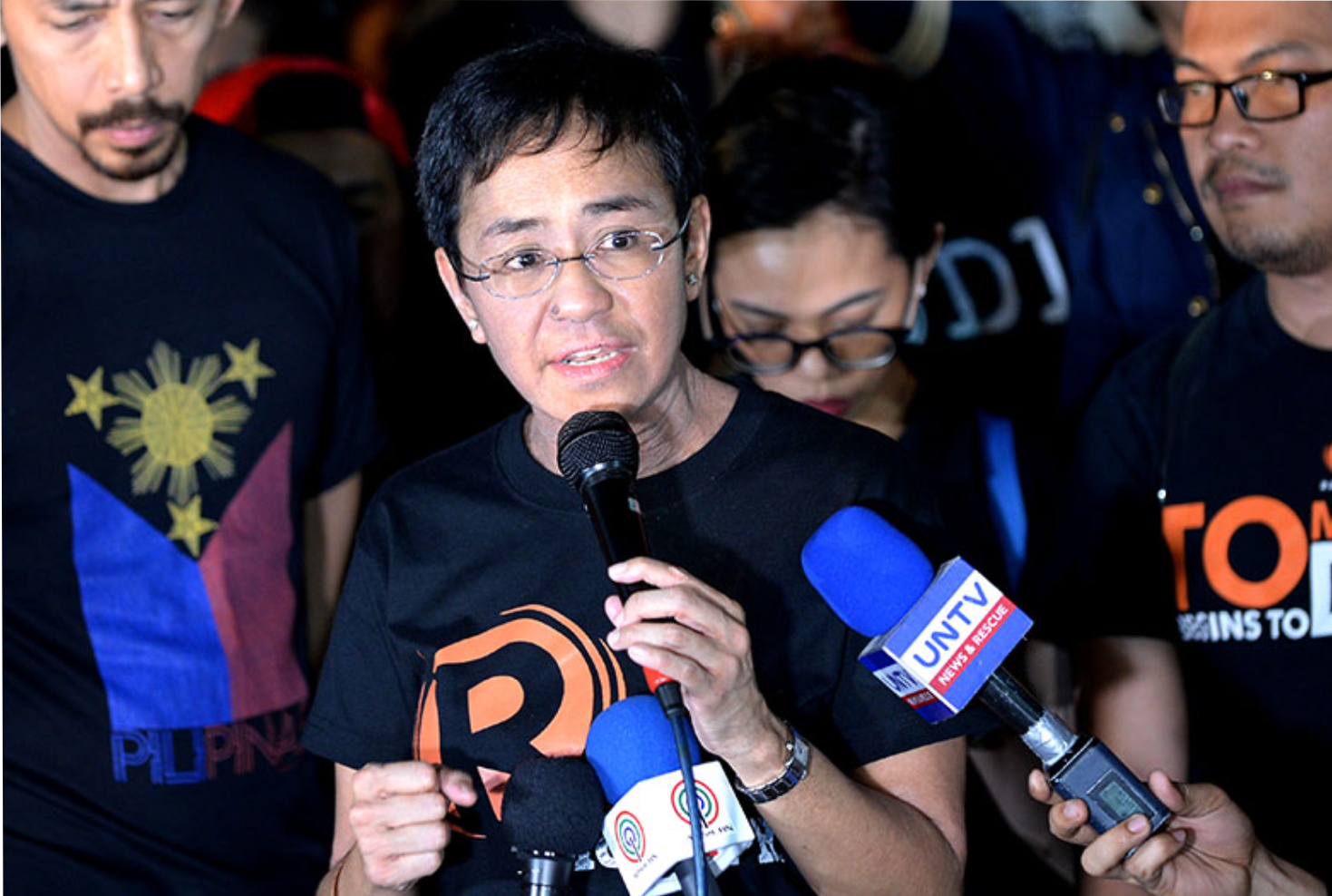 Maria Ressa, the CEO of Rappler, was the first to ring the alarm against the rise of fake news in the Philippines. In her exposes on Rappler, a social news site based in the Philippines, Ressa wrote about an infrastructure, possibly state-sanctioned, built to deceive the public ‘to intimidate and silence critics’. Fake news blogs started sprouting all over Facebook, confusing the people about the truth to disrupt public discourse. She compared the phenomenon to authoritarian tactics of Russian leader Vladimir Putin and Chinese president Xi Jinping, who have become close allies of Duterte in recent years.
Maria Ressa, the CEO of Rappler, was the first to ring the alarm against the rise of fake news in the Philippines. In her exposes on Rappler, a social news site based in the Philippines, Ressa wrote about an infrastructure, possibly state-sanctioned, built to deceive the public ‘to intimidate and silence critics’. Fake news blogs started sprouting all over Facebook, confusing the people about the truth to disrupt public discourse. She compared the phenomenon to authoritarian tactics of Russian leader Vladimir Putin and Chinese president Xi Jinping, who have become close allies of Duterte in recent years.
Her reports earned the ire of the Duterte government. In January 2018, the government revoked the license of Rappler to operate over vague accusations of foreign interference. Human rights groups accused Duterte of suppressing media outlets, building the movement to defend press freedom.
Duterte became heavy-handed in thwarting Rappler from putting his office under scrutiny. He started banning Rappler journalist Pia Ranada from covering his events. Ranada has always asked the sharpest questions to Duterte during press conferences, even fearlessly calling him out once for catcalling a female reporter.
The mostly-women staff of Rappler paved the way for a campaign against government-sponsored lies as they continue to provide fearless journalism.
Senator Leila De Lima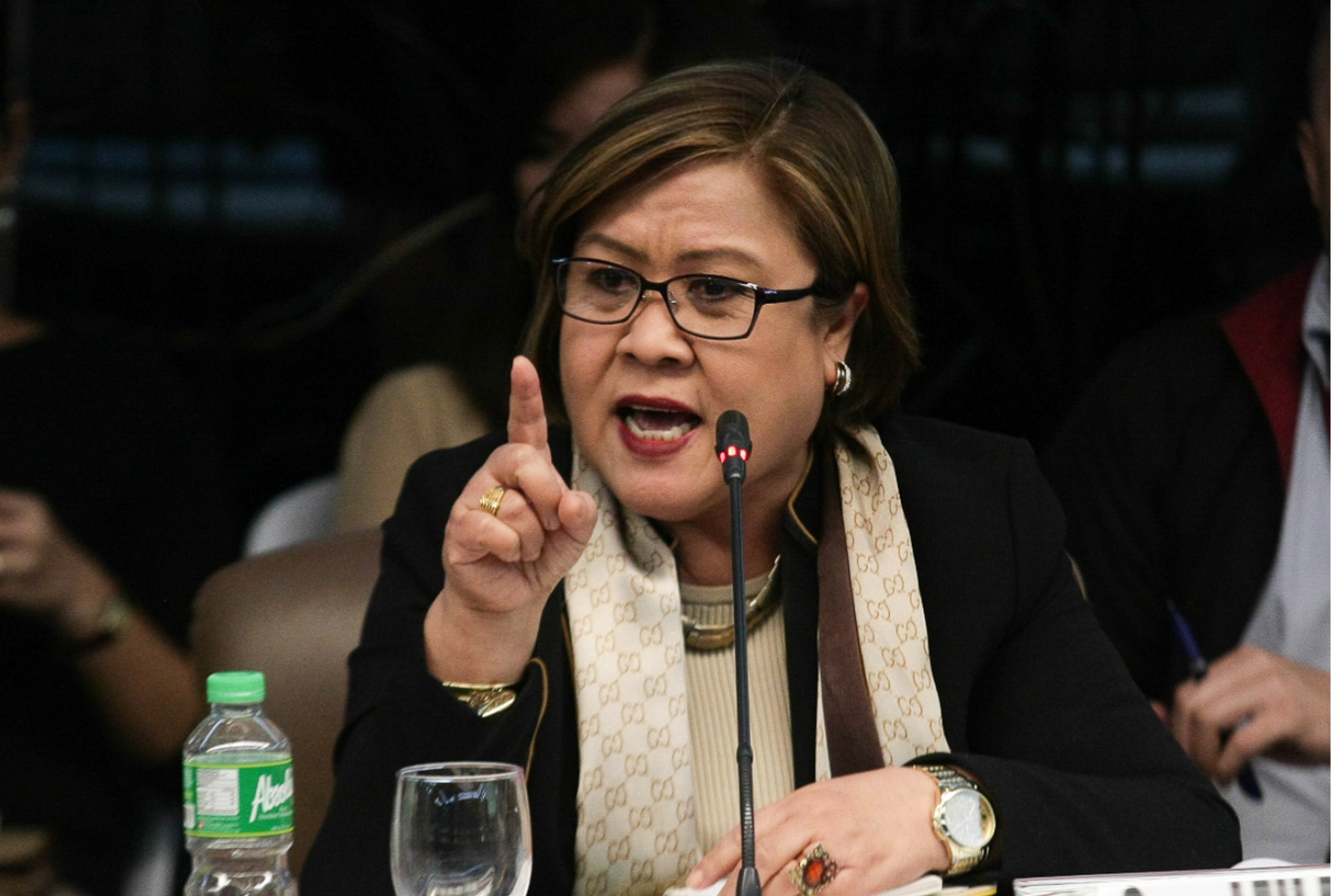 Senator Leila De Lima is the first high-profile political prisoner of President Duterte.
Senator Leila De Lima is the first high-profile political prisoner of President Duterte.
Senator De Lima ran on a campaign of justice “without fear or favor”. When she was the chairperson of the Commission on Human Rights, she launched a probe on Davao City Mayor Duterte, who is considered untouchable in his city despite allegations of mass killings of suspected criminals.
When she started opening the first Senate probes on Duterte’s killings in Davao City, she brought in former cops from Davao who provided testimonies that could have pinned down the president. The allies of Duterte in Senate panicked and quickly removed De Lima as the chairperson of the Senate justice committee, shutting down the investigations effectively.
De Lima faced the worst forms of attacks. After the Senate shakeup, she was politically harassed with trumped-up charges in the Senate, the House of Representatives and in Manila courts.
President Duterte and his allies threatened to show a made-up sex video of De Lima in their parliament hearings, in an effort to sexually vilify the senator. The women’s movement was so enraged with the government’s weaponization of misogyny that they formed Every Woman, a women’s coalition across political persuasions to stop the sexist harassments against the opposition.
De Lima may now be imprisoned by Duterte but she continues to be a vocal critic even behind bars. De Lima has been awarded for her bravery by different international groups-- the Amnesty International, Foreign Policy and Liberal International-- inspiring a global movement for her release from prison.
Chief Justice Maria Lourdes Sereno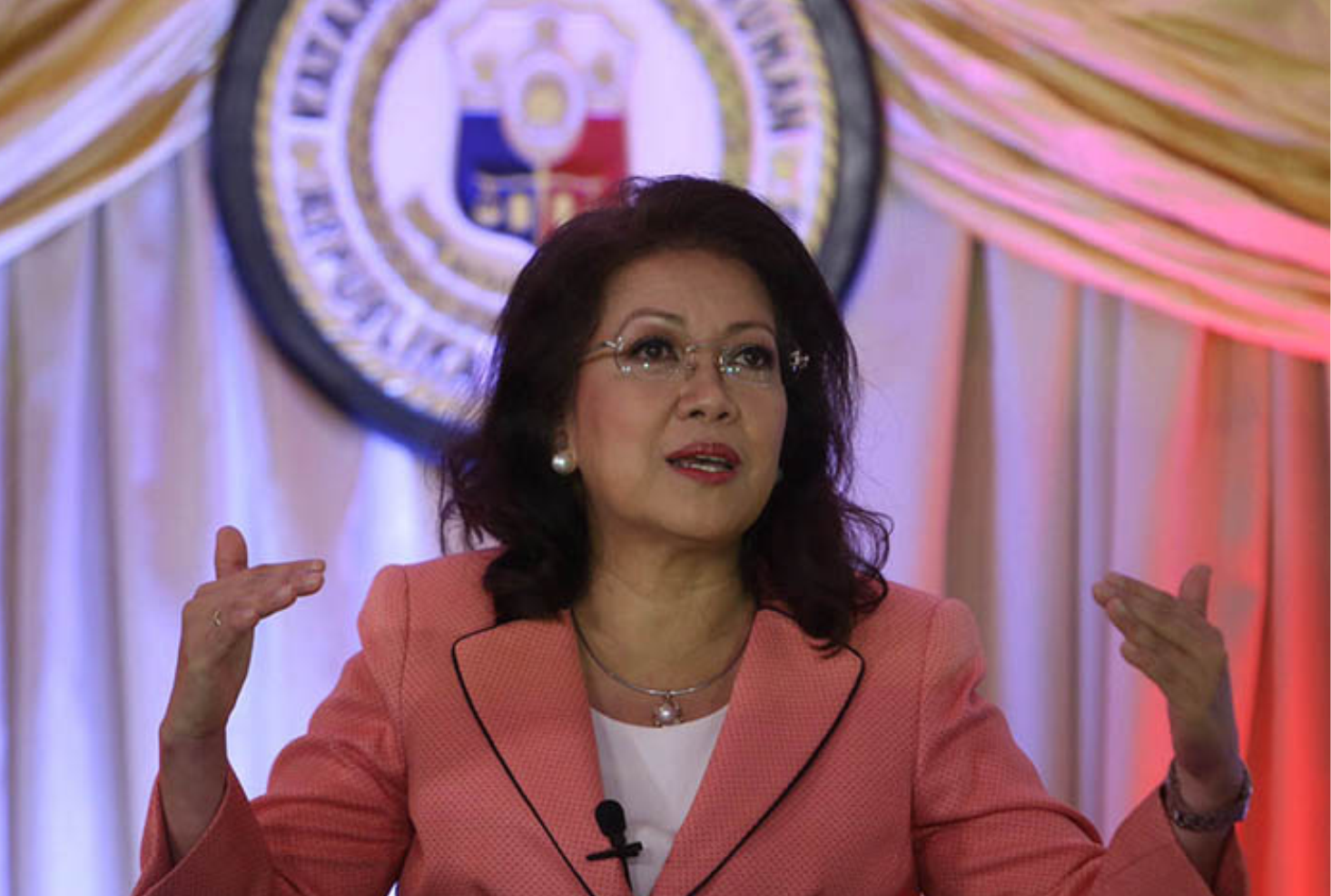 When Duterte started baring his personal list of politicians he accuse of being involved in the drug trade, Chief Justice Maria Lourdes Sereno was defiant, saying that judges on the list don’t have to surrender to authorities without a warrant from local courts.
When Duterte started baring his personal list of politicians he accuse of being involved in the drug trade, Chief Justice Maria Lourdes Sereno was defiant, saying that judges on the list don’t have to surrender to authorities without a warrant from local courts.
Duterte did not appreciate Sereno’s statement, saying that “he might lose his cool” if Sereno gets in the way all the time.
Sereno, the first woman to head the Philippine judiciary, did not fall short on her duties and voted against Duterte’s strongman policies in the Supreme Court-- twice. She opposed Duterte’s declaration of Martial Law in Mindanao, which petitioners claim was a dangerous move to open the emergency powers to abuse, and voted against the hero’s burial for dictator Ferdinand Marcos.
Now, the Duterte government is after Chief Justice Sereno in a bid to impeach her from her position. They have accused her of corruption and betrayal of public trust in a series of televised hearings. Duterte’s allies have even questioned her mental capacity, releasing a questionable psychological report in an effort to discredit her.
Chief Justice Sereno, despite facing a surge of attacks against her person, refused to resign. Sereno said that the impeachments moves against her is beyond her position. She is staying to defend democracy and the integrity of the judiciary.
In a March forum with Akbayan Youth, a democratic socialist organization, Sereno said: "The stakes for the rule of law if the evil machinators of the impeachment or the resignation scheme succeed is that no one, not one man, especially not one woman, will be safe in this country,"
"Everyone will have to look for a political patron to save [themselves] from incessant harassment, threats, and bullying," she added.
Conclusion
The Duterte regime has not stopped with its strongman politics. The killings continue, De Lima is still in jail and the judiciary is under attack with its head under threats of impeachment. But with women at the helm, the authoritarian rule of Duterte will find it hard to survive and a growing movement for justice, democracy and human rights will change the system. ###
________________________________________________
Justine Balane is the International Secretary of Akbayan Youth. He was recently elected as Vice President for Asia Pacific of the International Union of Socialist Youth. He coordinates projects and campaigns with youth groups and parties across the world. Email him at justinebalane@gmail.com